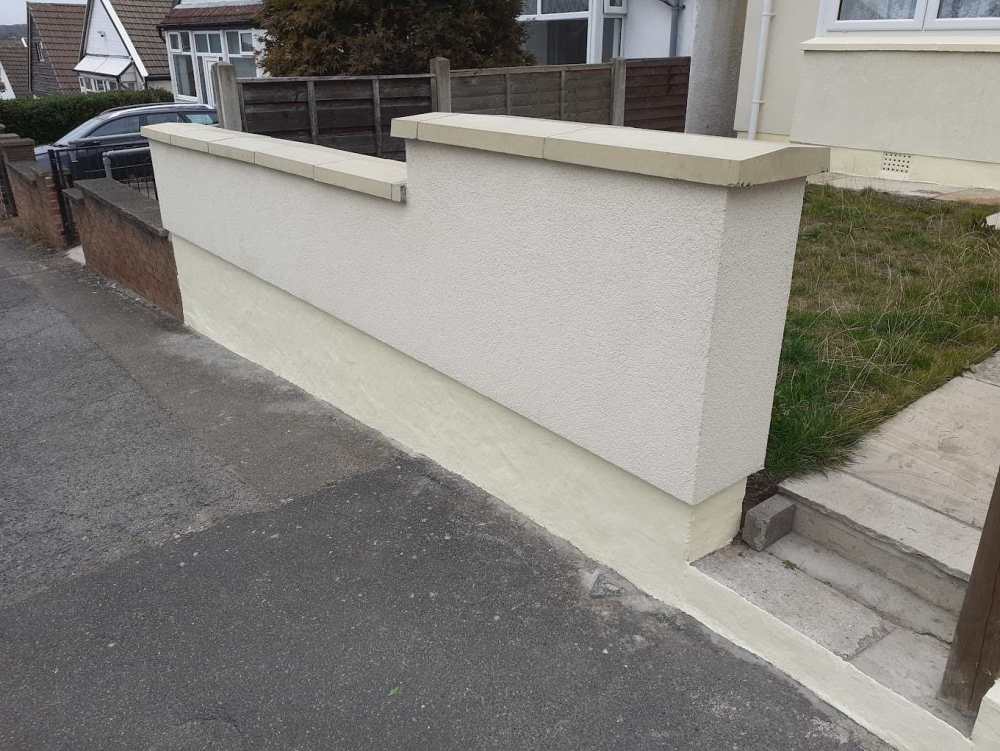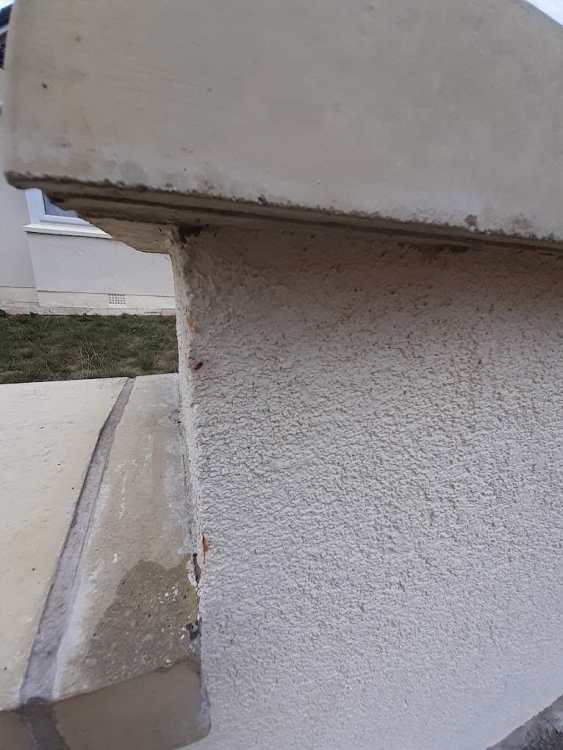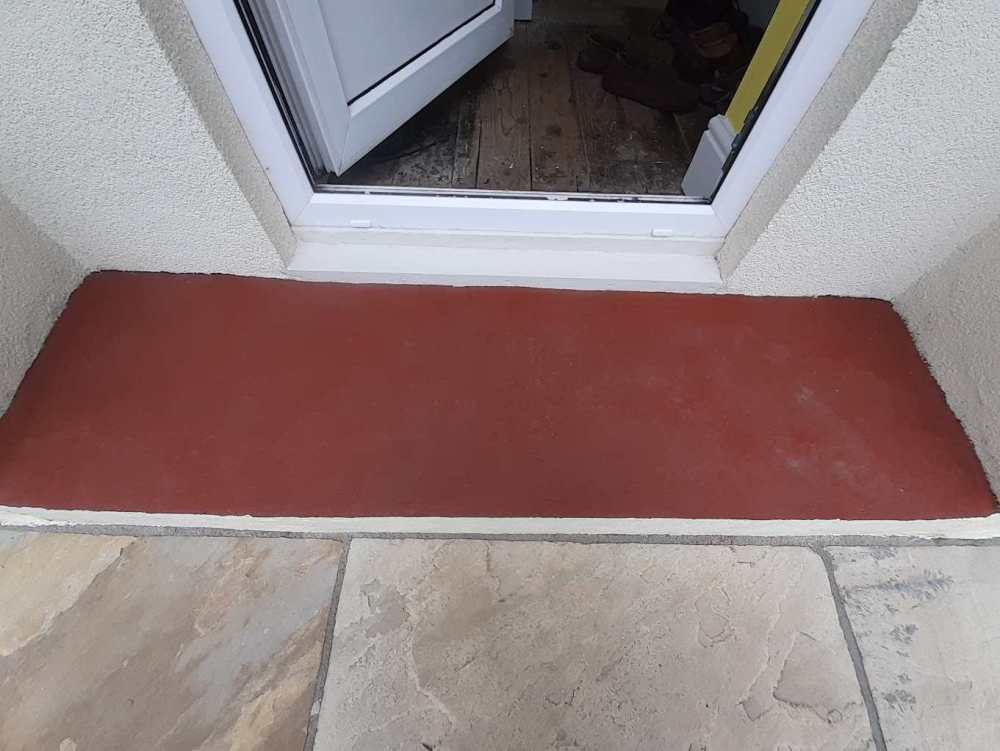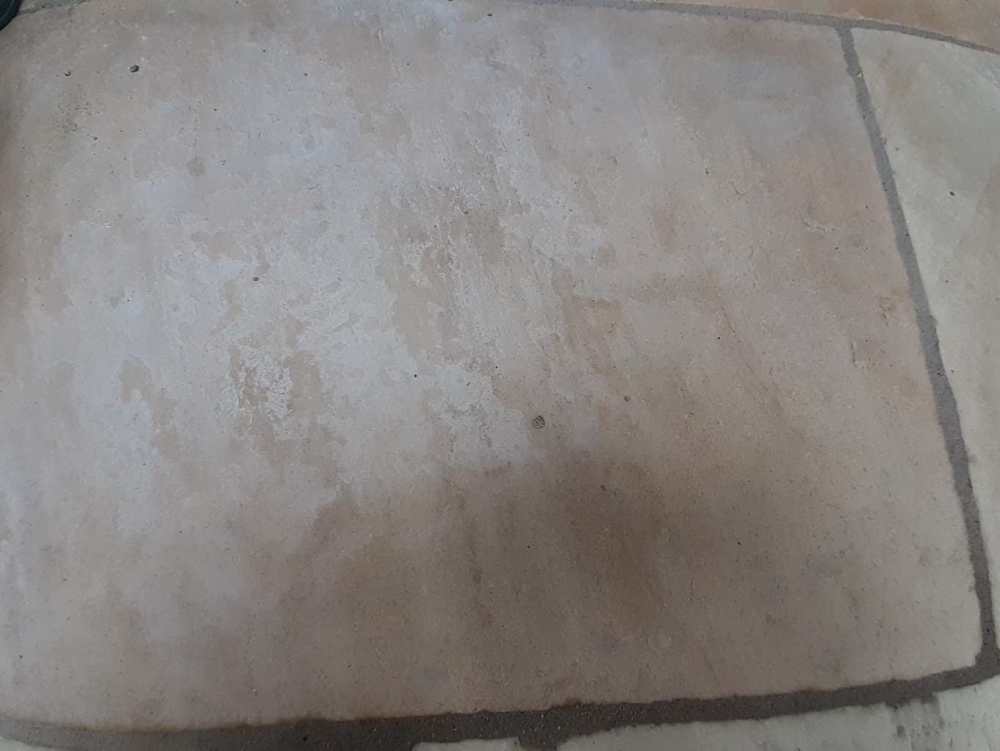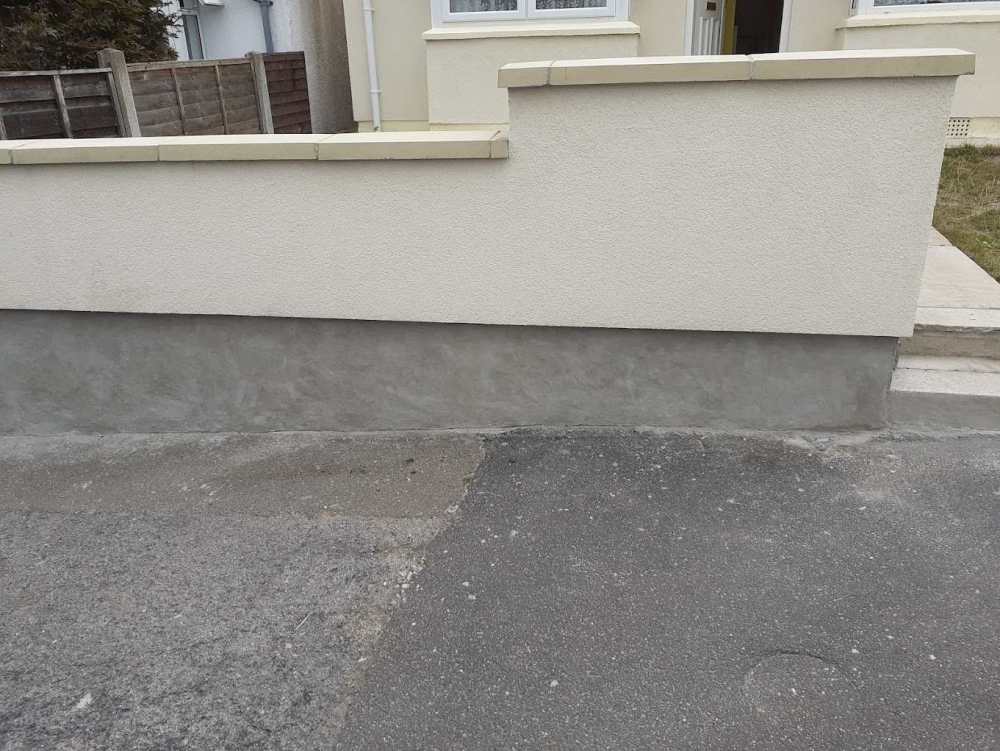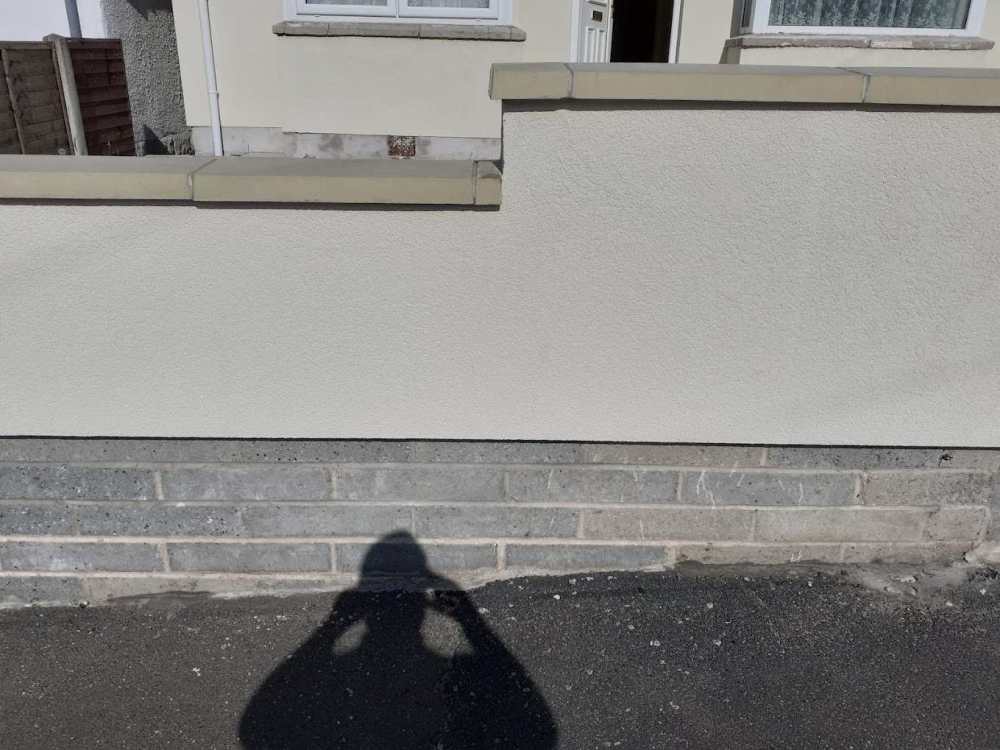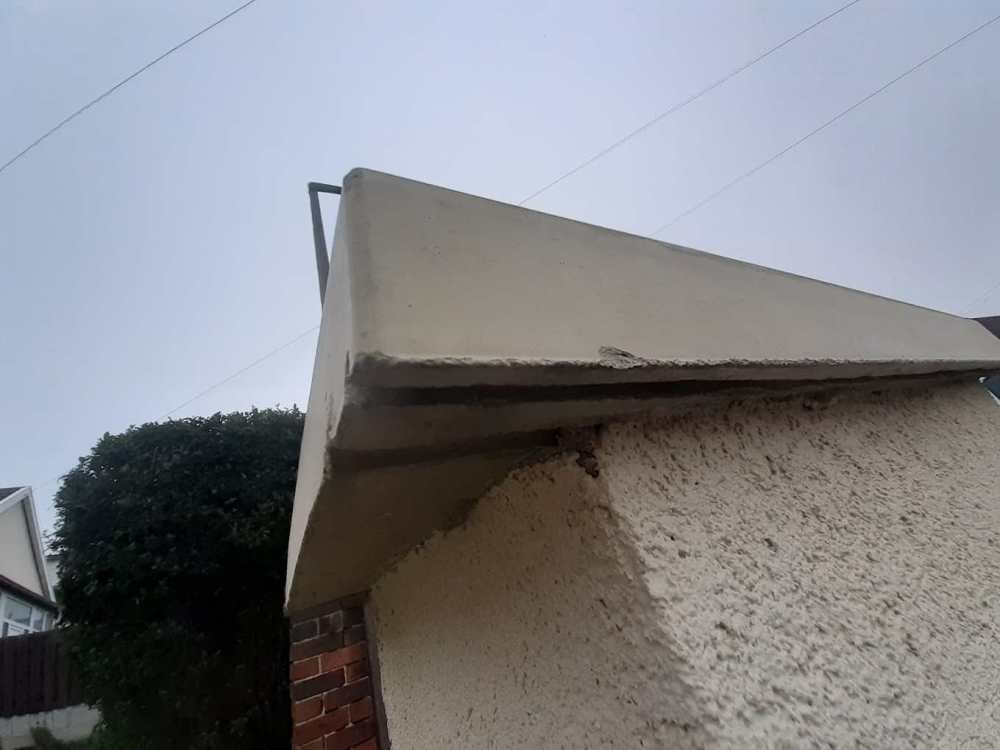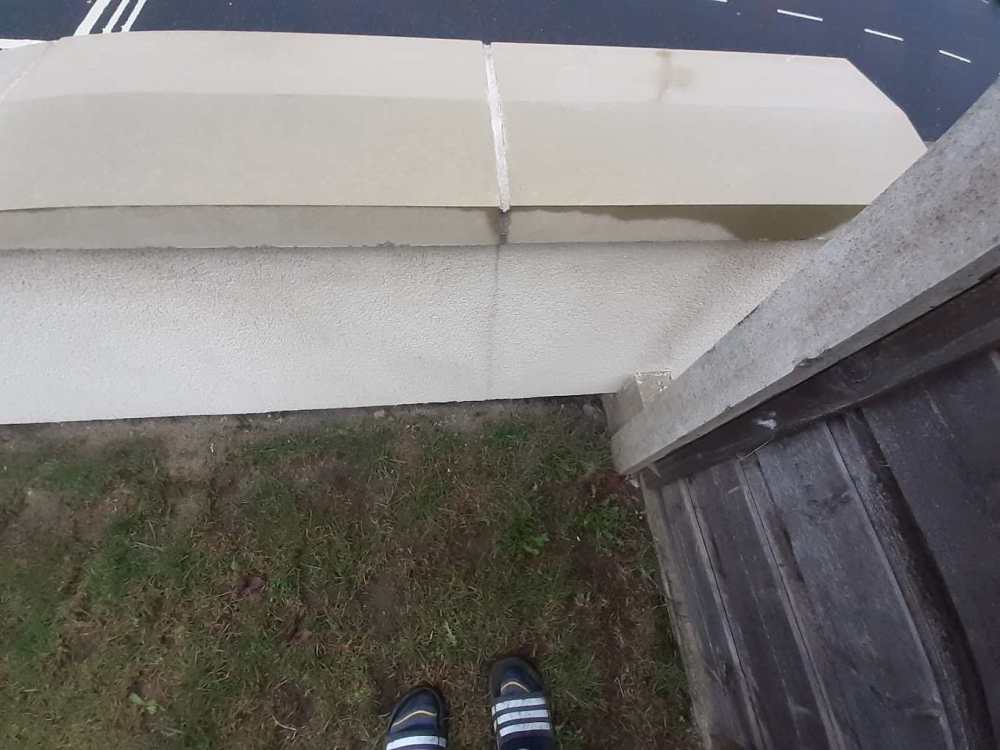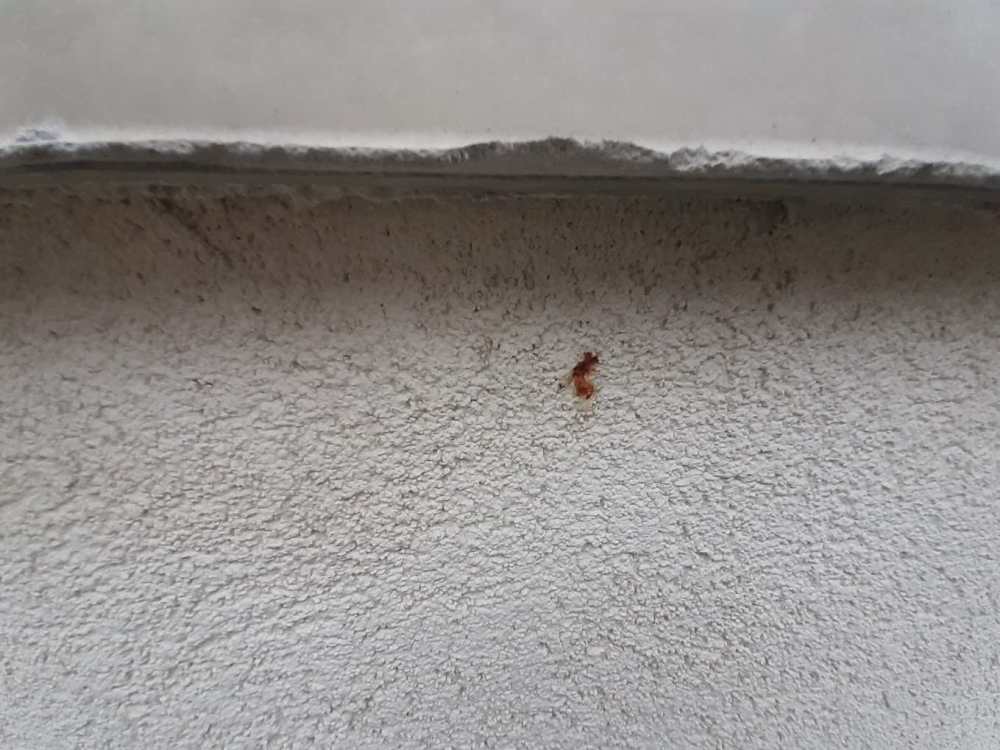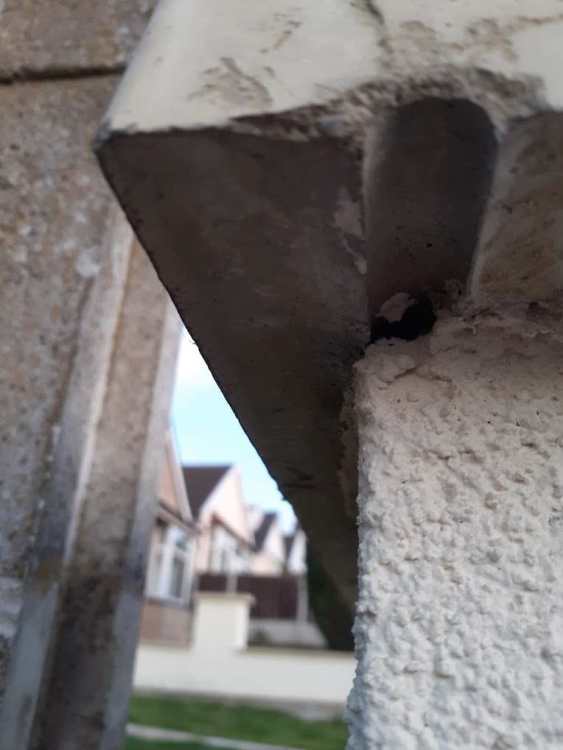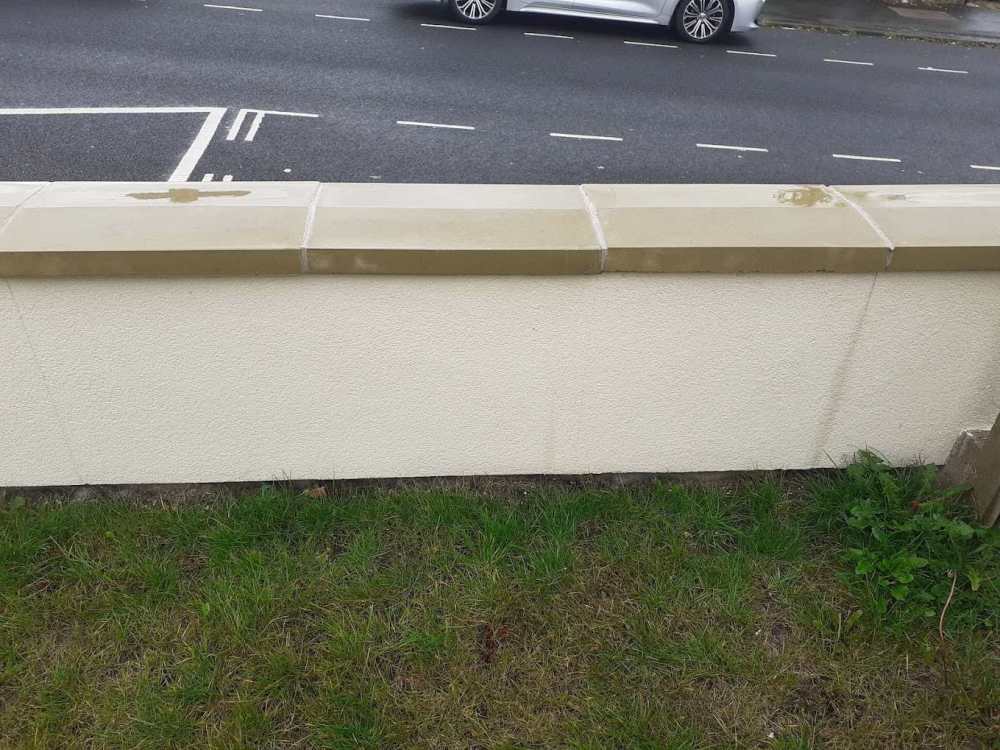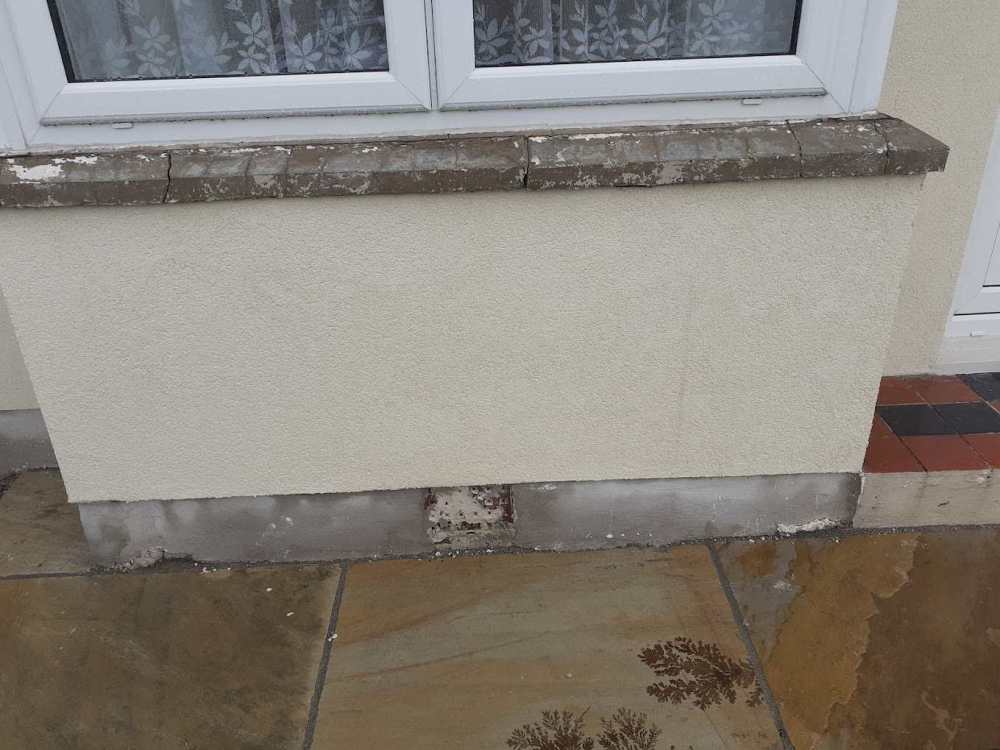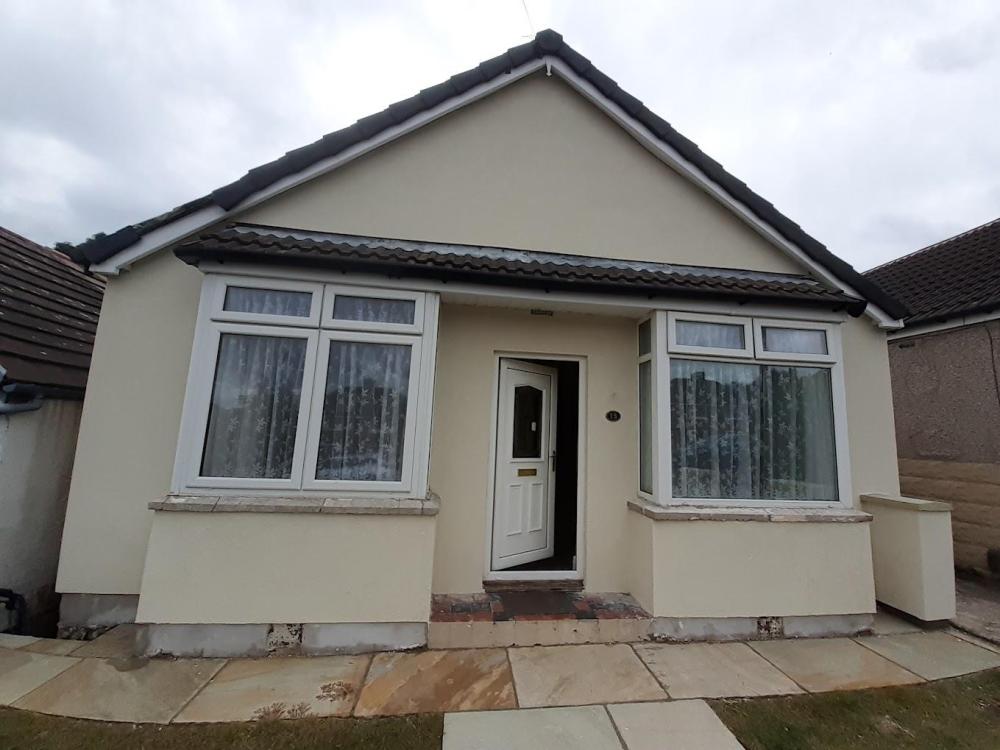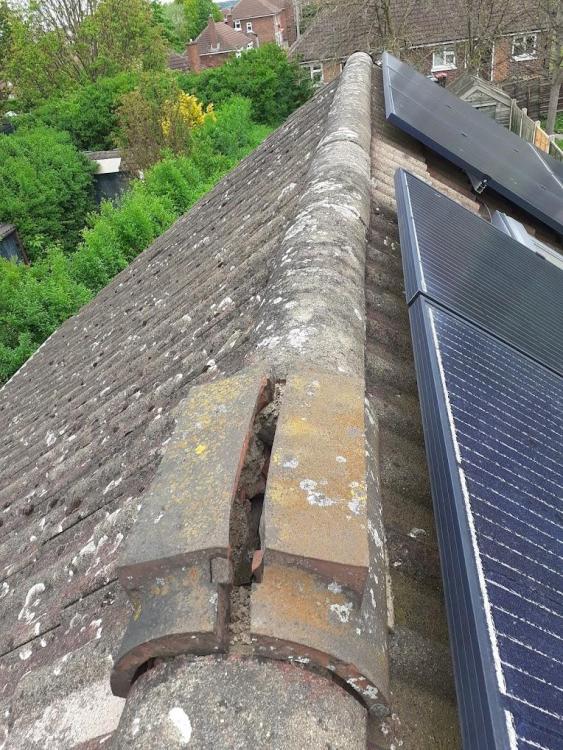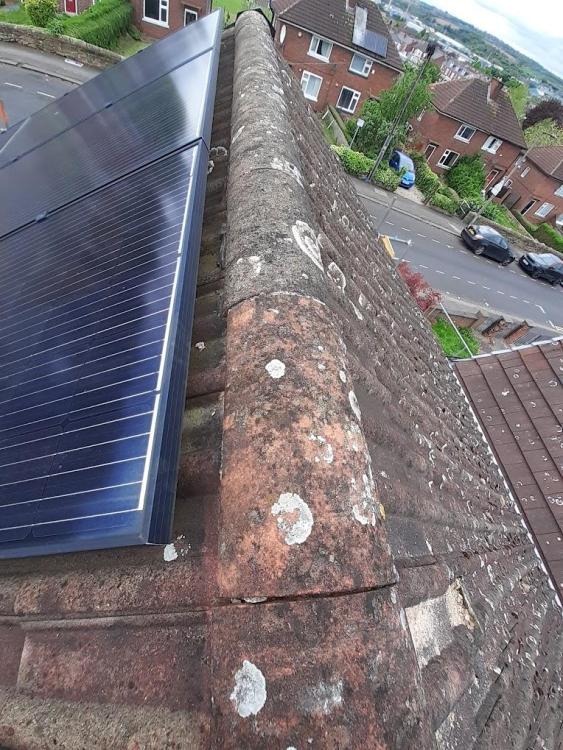
Daniel3103
Members-
Posts
14 -
Joined
-
Last visited
Recent Profile Visitors
The recent visitors block is disabled and is not being shown to other users.
Daniel3103's Achievements

Member (3/5)
4
Reputation
-
Advice Sought About Cleaning Products and Methods
Daniel3103 replied to Daniel3103's topic in Building Materials
Yes, the render is new. It was laid last year, and I have already had someone make the same comments as you, about using a metal bead rather than a plastic one and the rust being liable to come back. However, the rust hasn’t spread again since most of it was cleaned last winter – so I’m keeping my fingers crossed, maybe it won’t spread again soon… -
I have just seen your advice, but I have already done the painting by now. The pavement is in a poor state anyway, so I am going to leave it as it is. It doesn’t look any worse than in front of the neighbours. Here is a photo of my now-painted wall:
-
Hello, I have three outside areas on my property that I am trying to clean, but it appears that they need specialized cleaning products or methods and I don’t know how to go about these jobs. I am posting here to seek advice from fellow members of this forum. The three problematic areas are illustrated by the photos below. 1. Some rust is appearing on the rendering on a corner of my outside wall. The rust used to cover the whole length of the corner. I have had it chemically cleaned by a professional company, and they have managed to reduce the extent of the rust to the two small patches that you can see on the photo, but they told me they couldn’t remove those two patches. They also told me that if I didn’t do anything further, the rust would spread again. They advised me that the rust was leaking from a metal angle bead fitted underneath the render, and that I needed to put a barrier coat over the rust, and then put some paint over that in the same colour as the render. Can anybody here advise me about where I can find something to use as a barrier coat, and something else to use as a render-coloured paint to put over it? Does anybody know of any good products to use? 2. My door landing is painted with a red textured paint, and it is easily gathering dust and earth that is sticking to it. I have tried to remove it both with a dry duster and with a damp sponge, but to no avail. Any idea how I can get rid of it? 3. Some slurry powder has fallen onto an Indian stone on my patio and is sticking to it. This happened when I was mixing slurry powder with water in a tub in the area. I put a dustsheet on the ground as protection, and that limited the damage, but some slurry powder still found its way onto the Indian stone, and now I can’t remove it. I have tried both a dry brush and a damp sponge, but it hasn’t had any effect. Any idea how I can get rid of that powder? Any useful advice would be appreciated.
-
-
Thanks for all the advice. RE slurry - is this available from local DIY shops? RE efflorescence - I’ll look into it. This would make sense, since the wall was built without a damp proof course, so water could rise through it and leave salts behind. Or maybe wates is dripping from the render above, then onto the blockwork below and leaving salts behind. That latter possibility could explain the fact that the white marks appear as streaks rather than patches. I will research efflorescence and see what treatment I may need before painting the wall - but maybe someone on this forum can advise further about this?
-
Hello, I have some blockwork that is apparent underneath a couple of rendered walls. The photo below shows one of these places. I would like to paint the blockwork, and I am looking to use a light-coloured paint to make it look similar to the rendering above. I have two questions: 1. White streak marks sometimes appear on the blockwork. These marks are vertical. Any idea what they are, and do I need to do something about them? 2. If I use masonry paint, will it make the surface look homogeneous over the blocks, hiding the individual blocks and the mortar between them? Or do I need to spread a layer of cement over the blocks first?
-
dirty water marks on new rendering
Daniel3103 replied to Daniel3103's topic in Plastering & Rendering
I’ve now done the job! I’ve cut a new groove in the underside of the coping stones, alongside the existing groove that was in the wrong place. As Scottish John said, it wasn’t a very easy job and I haven’t done it very neatly, but I’ve done it well enough to make it work. I’ve already seen water being caught by the new groove and dripping from the edge of the coping stones to the ground - so, my work seems to have produced some effect! As for appearance, I’m not worried about it because the grooves are not visible. The first photo shows one of the new grooves I have cut – one of my neatest and straightest ones – alongside the groove that was already there. Now, my next job is going to be to clean the rendering. Do people here have any advice about that? This rendering has localised water stain marks as you can see from the second photo, and there are also a couple of small red marks on it, that I haven’t been able to wash off – the third photo shows one. It has also lost its shine more generally because of diffuse water staining and diffuse dust. So, what is the best way to clean this rendering and give it its shine back? RE the photos - the first one shows the underside of a coping stone, the second one shows the top and side of my wall and the third one shows the side. -
dirty water marks on new rendering
Daniel3103 replied to Daniel3103's topic in Plastering & Rendering
Thanks to those who have responded! I was never notified of the responses, so I only noticed them today. Now, to answer your questions. The render is Silicone K Rend TC15. As for the grooves in the coping stones, I have now figured out what the problem is, with the help of some advice I have received. These grooves should be above the overhang, but they are actually above the wall, as you can see from the photo below. So, it now seems to me that I need to cut new grooves into the lower surface of the coping stones, between the wall and the edge of those coping stones. Does this seem sensible to others here? What kind of distance should the new grooves be from the wall, or from the outer edge of the coping stones? -
Hello, I am posting here to get advice about dirty water marks that are appearing on my new rendering when it rains. Recently, I had my boundary walls and the front elevation of my bungalow rendered. I was happy with the job but, every time it rains, the water makes vertical marks on the rendering when drips run down against the walls. Those marks start about underneath the joints between the coping stones, and they can go all the way down to the ground - as you can see from the photo. It is worth noting, however, that the problem doesn’t happen under every joint and that there is sometimes a slight offset between the joint and the vertical line underneath. Also, on the other side of the wall - not shown on the photo -, the water makes a vertical line that is close to the middle between two joints. All the marks disappear in a few days after a rainy day, and they come back at the next rain. I thought the problem was happening because the joints between the coping stones were not waterproof, so I coated those joints with a waterproof layer, but that didn’t change anything. So, my questions are: -Do these dripping marks indicate a problem that is more serious than just the cosmetic issue? -Why is water dripping from specific points at the top of the walls, not from everywhere along the walls? -If I need to do something about this problem, what can I do without causing any collateral damage? As you can see on the second photo, the same dripping problem is also happening on my bungalow’s front wall, below my windowsill which is cracked and hasn’t been painted yet.
-
Hello, I need some advice about replacing some dry verges of my bungalow. I had some dry verges fitted to the front of my bungalow a couple of years ago and, recently, a couple of them have fallen off, as you can see on the photo. Since they were fitted, I have discovered that the roofer who fitted them was a rogue (he did other jobs that caused problems too) and, recently, another roofer came to give me advice and a quote about this. He said that the dry verges that were in place would need to be removed and replaced by new ones, because they couldn’t be re-used. He also said that the job would cost me about a thousand pounds in total if done properly, incduding materials, labour and putting up scaffolding. What are peoples’ thoughts on this advice? Does it seem about right, or not?
-
Hey, thanks for the replies! I have just logged back into this forum and realized that some people had replied to me. I never received any email notification about the replies, so I thought that nobody had commented on my post! Anyway, I’ve had the job done now and I went for the middle option of rebedding. To answer Redbeard’s question, yes I had a second price and the advice given was the same by the second roofer, with somewhat similar prices too. I didn’t go for a dry ridge system because, although I realized it would be best, I thought it might need to be taken down in about twenty years’ time. The solar panels have about twenty years’ life left in them, so when they come down may also be a good time to get the whole roof replaced, and I thought that would be a better time to fit a dry ridge system — depending on the state of the roof at that point.
-
Hello, I am posting here about some work needed to my roof. I was given three options by a roofer and I’m not sure which one to choose. The problem is that a lot of my ridge tiles are loose. They are not broken though, except the central vent tile which is cracked. I have discussed with a local roofer who has good customer reviews, and he has given me three options: install a dry ridge system for £1,800, re-bed the ridge tiles for £1,500 or re-point them for £650 (these prices are inclusive of the replacement of the vent tile and of replacing a couple of other broken tiles on the side of my roof). Are there experts on here who can advise me? Which of these options would be the most suitable in my circumstances? I attach a few photos, so you can see what the condition of my roof is like. This roof is old but in fairly good condition, and there doesn’t appear to be any leak inside the loft: I looked in there during a downpour and I couldn’t see any water leaking. So, what is your advice?
-
Hello, I'm posting here to ask for advice about a rainwater leak into my bungalow. Rainwater is leaking through the external wall into my bedroom. I've already tried to fix the leak twice, and each time the fix has worked for a while, but the leak keeps coming back. I'm not sure what to do now. The leak that I see happens when rain falls. The water comes from the top of the window recess inside my bedroom and falls down onto the floor. I'm pretty sure the leak is through the wall not the roof (because there are cracks in the external wall, whose location outside matches the ones inside where the water drops from; because I get the leak when the water falls at an angle onto the wall but not onto the roof; and because I can't see any leak in the loft space). The wall is a double wall made of concrete blocks, with a cavity in between, and the outside is rendered. As mentioned, there are visible cracks and holes in the rendering. I have patched those cracks and holes with cement on two occasions, and each time it has sorted the problem for a while, but the leak keeps coming back. I need to try another way to fix it now, I can think of two possible approaches but I'm not sure whether either of them would work well so I'm opening up the discussion. The first approach I'm thinking of would be to get a professional to patch the outside wall. Would this have to involve removing the rendering to treat the wall underneath, and if so what would the professional need to do? What type of tradesman or builder would I need to contact? Could I leave this part of the wall without rendering for a few years? (I'm asking this last question because the whole bungalow is a renovation project, inside and outside, a lot needs to be done including the whole rendering but I'm trying to do one thing at a time and the rendering is not the top priority; I'd rather not put new rendering on until I get to this point, but I still need the leak fixed now because the dripping noise is keeping me awake at night.) The other approach I'm thinking of would be to stick a sheet of waterproof material on this part of the outside wall, as a temporary fix for a few years before I renovate properly. Are suitable sheets available? Would I be able to stick one myself or would I need a professional? Would the noise of the rain falling onto the sheet keep me awake too, as this is outside my bedroom window? So, would either of my approaches potentially work, or would you do something else? Is there something else I need to know? Thanks for your advice.
-
Hi, I've just registered on this forum and I was prompted to introduce myself, so I thought I'd do so. I'm Daniel, I bought a 1930s bungalow in Rotherham a couple of years ago that needs a lot of renovation. I'll have questions about this, I'll post them in the appropriate threads.

